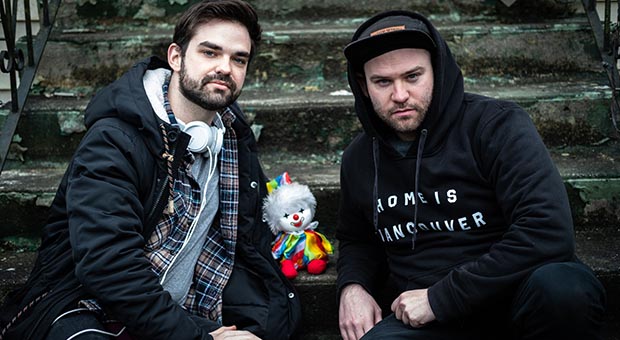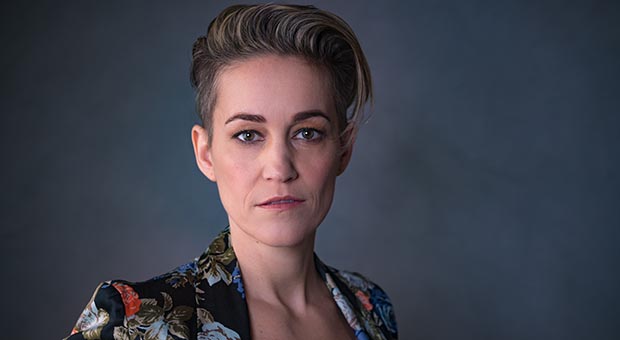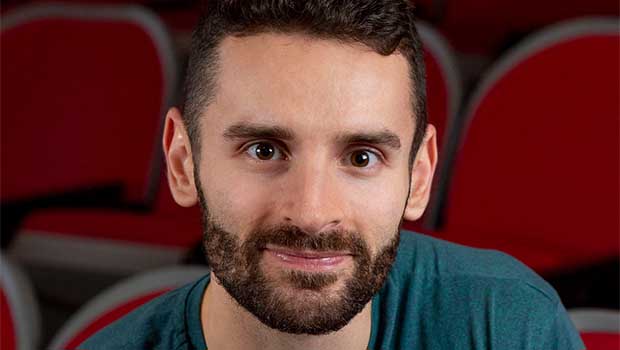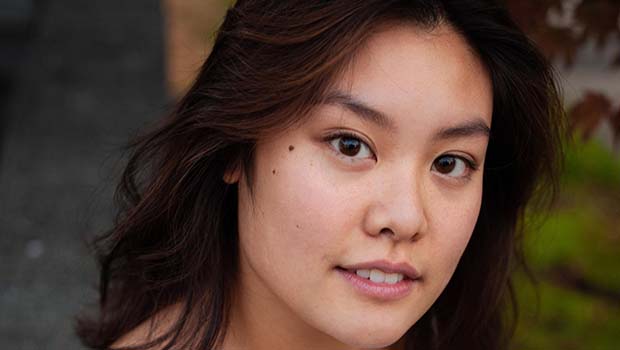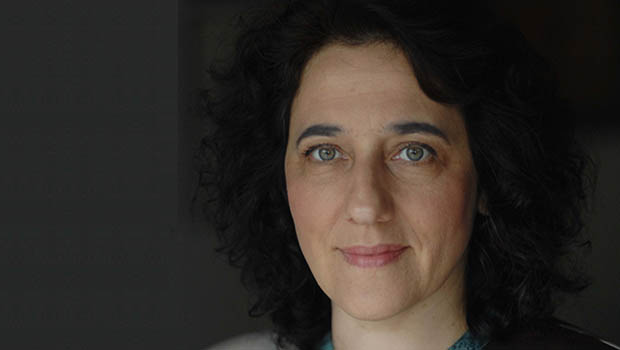
07 May The Biz Interview: Julia Ivanova
One of the most notable films at this year’s DOXA Documentary Film Festival so far has been Limit is the Sky, an unflinching look at what happens when a group of millennials in Fort McMurray are faced with dramatic changes in the town that surrounds them.
Just ahead of its release on the NFB website, we spoke to Julia Ivanova, the director of Limit is the Sky, to find out more about this engaging documentary.
________________________________
Can you start by telling us a little bit more about you and your film?
The dramatic drop in world oil prices may be playing havoc with economic forecasts, but it has upped the creative stakes in Limit is the Sky, a feature doc about a group of Canadian millennials whose search for money, meaning and identity leads them to a remote town in Northern Canada: Fort McMurray, the capital city of the world’s third-largest oil reserves. The town of immense sky and dusty winds becomes a testing ground for the young dreamers as they struggle with their own perceptions of money and self-worth, amid plummeting oil prices, an unpredictable economy and a devastating wildfire.
I directed, filmed and edited Limit is the Sky. It was fully produced by the National Film Board of Canada (NFB). I worked together with producer Bonnie Thompson and executive producer David Christensen of the NFB’s North West Studio in Edmonton. The most amazing thing about the film is that we started filming in 2012, when Fort McMurray was Canadian Eldorado, the Klondike, where people were making fortunes. . . and two years later we captured the spectacular downfall of the world oil prices and how instantly and drastically it affected everyone in town, crushing the feeling of security and castles built on sand. . . Then, in May 2016, the wildfire surrounded the city. It’s also in the film.
And yet, the six young dreamers whom I was following with my camera for four years are still only in their twenties or early thirties, and their experiences in the oil sands are just early chapters in lives they are determined to build on their own terms. They came to Northern Alberta looking for money, but instead they found themselves. Their time in the oil sands is up. What they leave behind in the devastated landscape of the Canadian North, however, is a different and much sadder story.
Can you walk us through your filmmaking process from the conception of the film to the completion?
I arrived in Fort McMurray in 2012, when oil prices were high enough to make anyone working in the industry rich and a truck driver in the oil field could easily earn over $150,000 a year. Drawn to people in their twenties, I found a world that was as insane as it was soulful. My goal was to find interesting young people who just arrived, full of hope and determination to succeed. I wanted to capture their successes and losses, their naiveté and solitude in a harsh Northern city, and how the place would change them. If you remember, for years before the wildfire, the general attitude to people who worked in the oil sands – especially the attitude in British Columbia – was extremely negative. I show the viewers that Fort McMurray, hastily developed on the back of an energy resource so wrong in so many ways, happens to be inhabited by people who are a lot like everyone, everywhere. We just earn less.
Limit is the Sky follows Max, a Lebanese barber; KingDeng, a Sudanese rapper; Sable, a determined, hard-working beauty from Edmonton; Patrick, a would-be Hollywood screenwriter; Mucharata, an unstoppable nanny-turned-heavy-haul-driver from the Philippines; and Andrew, an altruistic mechanic, as they try to jump-start their adult lives. But the lucrative oil-patch jobs prove harder to nab than expected; and when the bottom falls out of the oil market, each character finds him- or herself suddenly stranded at a precipice where once lay the path of their now disrupted plans.
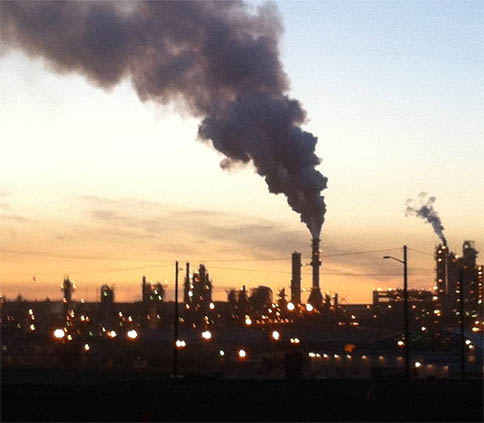
What should audiences expect from the film?
Limit Is the Sky approaches global issues—economic woes, environmental exploitation, the difficulties faced by young Canadians and newly arrived immigrants and refugees—from a uniquely human perspective. I think it has been summed up best by Nancy Lanthier in her article in POV Magazine about the film and me as a documentary filmmaker: “Sometimes grim, but always lyrical—the music and visual metaphors are great — Limit isn’t about the environment, capitalism and the economy, politics, First Nations rights, feminism, immigration or moral fortitude, but by letting her characters feel free to be themselves, these subjects inevitably prevail.”
What was the biggest challenge for you in making this film and how did you deal with it?
The most challenging aspect of Limit is the Sky was how real life and global events were violently interfering with the story, over and over again. Naturally, when you start filming you already have some sort of story in your head. In 2012 – 2014 I was making a film about young working class Canadians who are intensely trying to catch the golden bird of fortune by its tail in one of the dirtiest industrial projects in North America. And in late fall 2014, when we were editing, the oil prices crushed! “We can’t end it. We need to document the downturn,” that’s what producer Bonnie Thompson felt, and I as well. I went back to capture the city’s plight and the ways the characters were coping. In early April 2016 the film was finally finished. . . One month later: The wildfire! We couldn’t reopen the film but we made some changes several months later.
From your standpoint, what is the current state of the Canadian film industry and how can it be improved?
We have lost a huge percentage of funding because TV channels don’t have as many slots for stand-alone documentaries as it was even five years ago. Various formats of series have taken over, reality TV is pushing documentaries out of TV programming. The problem is: in Canada, documentaries are made mostly through the TV broadcaster-triggered funding. Thus, without the funding, the cultural depiction of Canada and important Canadian stories, are not captured and not brought to the Canadians. The essence of a national identity is in the uniqueness of culture and experience. With the reduction in numbers of documentaries, Canada is hurting itself as a country and as a nation.
Who are a few of the Canadian filmmakers and films that you appreciate the most?
I have my own “little darlings”, for sure! C.R.A.Z.Y. by Jean-Marc Vallée has been my favourite since the day I saw it in 2005; I love Heartbeats, Mommy by Xavier Dolan; Leolo is a very special film, Eldorado and When Night is Falling – both made in 1995; Two Lovers and a Bear, a new film by Kim Nguen.
There are many documentaries I could list as the films I love and appreciate a lot. The list is so long that maybe I should list the ones that resonated with my heart the most when I saw them – it doesn’t mean they are the best films but they touched me emotionally the most. The Vanishing Spring Light, Last Train Home, The Corporation, Fix: The Story of an Addicted City, Give me Your Soul…, Petropolis, Carts of Darkness.
________________________________
“The most rewarding moment is when you are editing what you’ve filmed and, step by step, you create the world that didn’t exist before.”
________________________________
What’s the most rewarding element of being a filmmaker?
Documentary filmmaking is not a glamorous undertaking but it is very addictive because you are creating your own interpretation of lives and events, you meet and become friends with a huge variety of people and you go unique places not as a tourist. The most rewarding moment is when you are editing what you’ve filmed and, step by step, you create the world that didn’t exist before. It doesn’t mean you are creating a fictitious world – it’s a documentary after all – but nevertheless you are a creator of something important and emotional that didn’t exist before – The Film.
What advice do you have for aspiring documentary filmmakers?
If there is a story you want to share with the world – just do it! Filmmaking is a craft, the more you practice it, the better filmmaker you would become.
What film-related books and authors have been influential in your creative journey?
I was greatly influenced by literature and films but I can’t say the same thing about film-related books. Though, books written by some of my favorite directors were delightful: Federico Fellini’s The Book of Dream, the book of interviews with Luchino Visconti, Sculpting in Time by Andrei Tarkovsky.
________________________________
Thanks to Julia Ivanova for speaking with us!
Limit is the Sky will be released online by NFB on May 16th, 2017. You can check it out at NFB.ca.

